- Home
- Diana Palmer
Noelle Page 3
Noelle Read online
Page 3
“Well, I’m delighted to have you,” Mrs. Dunn said. “And I’m sure Andrew will be. He’s away for the week, on business, you know. He does sales work for a local brick making concern. He’s been in Galveston lately to take orders. That’s where he found our lovely Noelle.”
He glanced at the young woman. She was younger than he’d thought at first—probably not yet out of her teens.
“This is my grandson, Jared, Noelle. And, Jared, this is Andrew’s young cousin, Noelle Brown.”
Jared looked at her without speaking. “How did he chance to discover the relationship?” he asked finally.
“A mutual acquaintance pointed it out,” Noelle said. She clasped her hands together tightly at her waist.
“An observant one, no doubt, as you certainly share no surface traits with my stepbrother, who is blond and dark-eyed.”
“His mother was auburn-haired,” Mrs. Dunn pointed out, “and his mother’s people were Browns from Galveston. Naturally when he made mention of it, an acquaintance there told him of Noelle’s existence, and her sad plight.”
“I see.”
“Dear boy, what has happened to you?” she asked, nodding toward the cane.
He leaned on the cane a little heavily. “A slight accident.”
“Only that?” Noelle asked sweetly. “What a relief to know that you weren’t slammed in the leg with a fence post, sir.”
He cocked his head and stared at her pointedly. “You’re very plainspoken, Miss Brown.”
“I’ve had to be,” she replied. “I had four brothers, sir—none of whom ever made allowances for my lack of muscle.”
“Don’t expect me to make allowances for your youth,” he countered in a dangerously soft tone.
Her eyes went to the gray hair at his temples. “You may also expect that I’ll make none for your age.”
One dark eyebrow lifted. “My age?”
“Well, you’re quite old.”
He had to choke back a retort. Probably to a girl in her teens, he did seem elderly. He ignored her latest sally and turned back to his grandmother. “How have you been?” he asked, and his tone changed so drastically that Noelle was surprised.
Mrs. Dunn smiled warmly at him. “Quite well, my boy, for a lady of my years. And you look prosperous as well.”
“New York has been good to me.”
She looked at the leg. “Not altogether, apparently.”
He smiled. “This happened in New Mexico Territory. An accident.”
“Surely you weren’t thrown from a horse,” she began, such an accident being the first sort to occur to her.
Noelle looked at him as if she expected that a man in such an expensive suit, an attorney, moreover, who lived in a huge eastern city, wouldn’t know which end of a horse to get on.
“Horses are dangerous,” Jared replied, deliberately evasive. He was enjoying their young houseguest’s evident opinion of him. He could almost see the words in her green eyes: milksop; dude; layabout; dandy…
Her eyes met his and she cleared her throat, as if she’d spoken the words aloud. “Would you care for some refreshment, Mr. uh, Mr. Dunn?”
“Coffee would be welcome. I find travel by train so exhausting,” he said, with a mock yawn, deliberately assuming the facade of a tame city man.
Noelle turned quickly and left the room before she burst out laughing. If that was Andrew’s formidable stepbrother, she was in no immediate danger of being thrown out. Although, just at first, there had been something in those steely eyes, in the set of his head, in his stance, that had made her very uneasy. Probably she was being fanciful, she thought, and continued on to the kitchen.
“Now,” Mrs. Dunn said, when Noelle had closed the door and her footsteps could be heard going down the hall, “what happened?”
“I had a disagreement with an armed cowboy in a small community called Terrell,” he said, sitting down across from her. “My shot broke his arm, but a wild bullet got me in the leg. It still pains me a bit, but in a few weeks, I’ll be as good as new. So will he, fortunately,” he added grimly. “Maybe he’ll be more careful about who he pulls a gun on from now on.”
“Gunfights, in such a civilized age,” his grandmother said coolly. “For heaven’s sake, this is just what Edith wanted to avoid! It’s why she begged you to go East to school in the first place.”
“I have avoided it—mostly,” he said, dropping the cane idly by his side. “There are still uncivilized places…and men who reach for a gun before they look for a man with a badge. In court cases, tempers run hot.”
“That’s probably why you chose law as a profession,” Mrs. Dunn said curtly. “It’s a dangerous job.”
He smiled. “So it is, from time to time. I’m going to open an office here in Fort Worth. New York has lost its appeal for me.”
Her blue eyes, so like his own, softened. “Are you, truly, Jared? It would be such a joy to have you home all the time.”
“I’ve missed you, too,” he confessed.
She bit her lower lip. “No one knows about your past here,” she said gently. “I’ve never told anyone, least of all Andrew. But these scrapes you get into… What if any of your adversaries turn up in town?”
He chuckled. “What if they do? Gunplay is a thing of the past, except in saloons and during robberies. I’m hardly likely to find myself a target for young gunmen, except in dime novels,” he added dryly.
“Don’t remind me,” she muttered, recalling that he’d been featured in one with a lurid cover and six guns in both his hands—ridiculous, since he’d only ever worn one gun, even in his young and wild days.
“I’m a respectable attorney.”
“You’re a hard case,” Mrs. Dunn said shortly. “And neither of us is as respectable as we want people to think we are. Why, I was working in a saloon in Dodge when your mama had you. And now I belong to the Women’s Benevolent Society and the Temperance Union and the Ladies’ Sewing Circle and the prayer group. However would people look at me if they knew my real past?”
“The same as they look at you now, except with more fascination, you naughty woman,” he murmured dryly.
She laughed. “I hardly think so.” She shook her head. “Oh, Jared, how hard are the lessons we learn in youth. And all our indiscretions follow us like shadows into old age.”
He searched her tired, lined face with compassion. Her life had been a much harder one than his own, although he carried scars, too. Despite the fact that he’d never killed without reason, the violence of the past occasionally woke him in lurid detail, and he had to get up and pace the floor to subdue the nightmares.
“You have your own demons,” she said, recognizing the fleeting pain in his eyes.
“Don’t we all have them?” He sighed heavily. “What about our redheaded houseguest?” he added. “Tell me about her.”
“She’s very kind,” she said. “She can cook if she’s ever needed in the kitchen, and she doesn’t mind hard work.”
“That isn’t what I asked.”
She grimaced. “She’s sweet on Andrew, and vice versa. He was attracted to her at once. When he found out her circumstances, he insisted that she come here. Her family died in the flood that hit Galveston in the fall of 1900, and she’s been living in Victoria with an elderly uncle. But he has the offer of a good job in Galveston and she was terrified to go back there. Perhaps the uncle wanted to be rid of her. So Andrew invited her to come and live with us.” She tucked a fold of her dress into place. “He knew you wouldn’t like it, but he said that he did contribute to the household accounts and he’d be responsible for her keep.”
“He contributes ten dollars a month,” Jared remarked. “The rest he spends on new boots and fine livery for his carriage.”
“Yes, I know. But his father was good to Edith.”
/>
“And to you. I remember. Andrew is the cross we must bear for his father’s kindness.”
“That was unkind and uncharitable.”
“I’m not a kind man,” he reminded her, and for an instant, the old, wild look was in his eyes.
“I might agree if I didn’t know you so well. You’re kind to the people you love.”
“There were only ever two—you and my mother.”
She smiled gently. “You might find a woman who could love you and marry one day, Jared. You should have a family of your own. I won’t live forever.”
“Andrew will,” he muttered darkly. “And I expect to find myself responsible for him until I die.”
“Cynicism does not suit you.”
“I find that it sits heavily on me of late,” he returned, tapping the boot on the foot he’d crossed over his knee. “When I started practicing law, I wanted to be on the side of justice. But lately, more and more, I find myself on the side of money. I’m tired of helping the rich disinherit the poor. Ambition has paled for me in recent months. Now, I want to do some good.”
“I’m sure you already have. But you will find worthy people here in need of representation.”
“Yes. I think I will.” He narrowed one eye. “Is Andrew serious about Noelle?”
She grimaced. “Who can tell? Andrew is fickle. He was trying to court Amanda Doyle for a brief time… You remember her father, Jared—he has a big house in town and three daughters. He fought in the cavalry in the Indian Wars.”
“Yes,” he said as an impression of a dignified old man flashed before his eyes. Like himself, Doyle had grown up in wild times, but his daughters had been protected from everything unpleasant and his wife was a socialite.
“But Miss Doyle would have nothing to do with Andrew,” his grandmother continued. “It was about that time that he went to Galveston and found Noelle.”
“And devastated her with his swagger, no doubt,” Jared murmured dryly.
“Dear boy, he does cut a dashing figure with his exaggerated war record and his blond good looks and his arrogance.”
“And his youth,” Jared added, chuckling. “Your houseguest seems to class me with the aged and infirm.”
“She knows nothing about you,” she reminded him. “And you seem to be encouraging her mistaken impression of your character.”
“Let it lie,” he said. “She seems to be no more than a bad-tempered child, but if she came here expecting someone to support her for the rest of her life, she’s going to be badly disappointed.”
His grandmother flushed. “I never thought of the imposition it would mean to you, bringing her here,” she said, embarrassed.
He held up a hand. “You were coerced,” he said simply. “I know Andrew, remember. But we know nothing of this girl. She could be anybody.”
“Andrew said that her uncle was well-known, and the family was a respectable one,” she told him.
He didn’t want to know anything about the girl. She irritated him too much already.
“And it occurred to me that Andrew might have brought her here because he was considering marriage,” his grandmother added.
He didn’t like that. He laughed coldly. “Andrew isn’t ready to settle down,” he added deliberately, more for his own benefit than hers. He leaned back and rubbed gingerly at his sore leg.
“Do you intend asking her to leave?” Mrs. Dunn asked slowly.
“I might,” he replied. “It depends on what I learn about her. Let’s say that she’s here on suffrage until I make a decision.” He smiled at her. “I’d like to hear more about these new organizations springing up in Fort Worth, the ones you’ve been writing me about. What exactly is the Civic Betterment Project?”
Chapter Two
IT RAINED ON Jared’s first morning at home. He walked to the window of the dining room while he waited for the family housekeeper, Mrs. Ella Pate, to get breakfast on the table. Mrs. Pate did all the cooking and washing for the family. The elegant house was well kept and had all the most modern conveniences, including a very nice big bathroom with sound plumbing.
The tangles of pink roses on the bush outside the window were in glorious bloom, but they didn’t impress the man on the other side of the windowpane. He saw neither the silver droplets of rain sliding down the glass nor the roses. His eyes were on the past, which being in Fort Worth had brought back most painfully to his mind.
This house wasn’t the one that Jared’s mother had lived in with his stepfather; it was newer. But even if the house was different from the one his mother had died in, being with his grandmother had kindled painful memories of his late mother and the past. He hadn’t expected that.
“Aren’t the roses nice, Mr. Jared?” Mrs. Pate asked pleasantly. “Old Henry keeps the bushes in order for us, although Miss Brown likes to putter around out there—in men’s overalls—when he isn’t looking. She has the touch with vegetables, not to mention flowers.”
Mrs. Pate’s starchy comment about Noelle’s choice of clothing amused him. He could imagine how straitlaced Fort Worth would take to a young woman in men’s clothing working in full view of the street. He wondered what else she had the touch for, but he didn’t say a word. She came from poverty, and he still wasn’t certain if her reasons for being here didn’t have something to do with improving her own situation.
His grandmother came through the dining room doorway with Noelle just behind her.
“Good morning, Jared. Did you sleep well?” she asked brightly.
“Well enough.” He glanced at Noelle, who was helping his grandmother into the chair. Very solicitous, he thought, and wondered at once if she was putting on a show just for him.
“Thank you, dear,” Mrs. Dunn said. “Breakfast looks delicious, Ella.”
“I hope it tastes just as good,” Mrs. Pate said, with a grin.
“Let me have your cup, Jared, and I’ll fill it for you,” Mrs. Dunn offered.
He slid it over to her. His eyes met Noelle’s above the pot. She wasn’t looking at him. She was looking out the window at the rain and seemed lost in thought.
“Where are your thoughts, Miss Brown?” he asked.
She jerked her head around self-consciously. “I was wondering if Andrew would be home today.” She bit off any further explanation, angry because he made her feel like a schoolgirl.
“He said that he hoped to be back this evening,” Mrs. Dunn remarked. “He’ll be glad to see you, Jared.”
“Do you think so?” He creamed his coffee, leaving out sugar. “He wasn’t here when I passed through last year at Christmas.” That had irritated him, too—that his grandmother would have been alone at the holidays except for his impromptu visit.
“He was visiting some friends in Kansas City.” Mrs. Dunn refrained from mentioning that one of them was female. “Andrew’s job takes him away quite a lot.”
He sipped his coffee and then took the platters as his grandmother passed them to him, filling his plate with eggs, sausages, tomatoes and biscuits. There was a mold of fresh butter on the pretty rose pattern of the scallop-edged English bone china saucer. Mrs. Pate bought fresh butter every week for the family. There was also a variety of preserves, jams and jellies that Mrs. Pate and Jared’s grandmother had made last summer and fall. He was especially fond of the creamy peach preserves and took two spoonfuls of it from the elegant silver dish.
“It won’t be long until we’ll have fresh vegetables,” Mrs. Dunn remarked. “The kitchen garden is growing nicely.”
“Indeed it is,” Noelle remarked absently. “I’ve covered the young tomato plants against the chill, to make sure they aren’t hurt by any unexpected frost.”
“Henry asked me why there was so little weeding to be done,” Mrs. Dunn remarked.
Noelle cleared her throat. She
had to bite her tongue to keep from mentioning how heavily old Henry was hitting his whiskey bottle lately. She had found out accidentally, and she didn’t want to give Jared a worse opinion of her by running down his gardener. The family seemed to dote on the man. Noelle didn’t. She found his halfhearted gardening irritating. “I had some free time…”
“Mrs. Hardy down the block noticed you working in the garden in those overalls and mentioned it to me. It seems that her sense of proper ladylike behavior was ruffled.”
Noelle’s green eyes flashed. “I’m a countrywoman, Mrs. Dunn,” she murmured. “I’ve done everything from milking cows to scouring floors, and it’s hardly appropriate to wear a long dress in muddy ground.”
“Yes, but you must be more discreet here,” the older woman said worriedly. “Henry was employed to do the gardening, you know.”
Jared had to fight down laughter. His grandmother had been one of the world’s worst at taking jobs away from servants when she’d moved to Fort Worth with her daughter and that young woman’s new husband. It had taken her some time to learn the ways of polite society. He presumed she was hoping to spare Noelle some of the painful lessons she’d had to learn.
“I promise that I’ll try, Mrs. Dunn,” Noelle said respectfully, thinking all the while that she wasn’t giving up her gardening—or her overalls—no matter what.
Her tone was even, but she was mutinous. Jared knew it as he glanced at her, although he didn’t understand how he knew it.
“It’s for your own good that I say these things,” Mrs. Dunn assured her gently. “I don’t want you to have to learn the hard way. Wagging tongues and gossip can be very damaging indeed.”
Noelle sipped her coffee. “I’m not used to living in such a grand manner,” she commented.
“Grand manner?” Jared said sarcastically.
“A house with servants is grand to me, Mr. Dunn,” she returned, stung by his tone. Her complexion was just the least bit pale. She took her napkin from beneath her utensils belatedly, having noticed that everyone else had a spotless white linen napkin on their lap, not on the table. She spread it over her skirt and then peered at Mrs. Dunn’s hand to see how she held her silver fork.

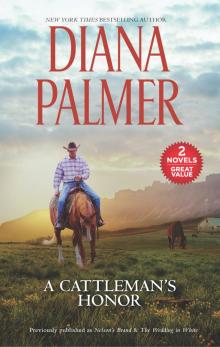 A Cattleman's Honor
A Cattleman's Honor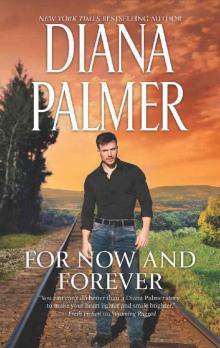 For Now and Forever
For Now and Forever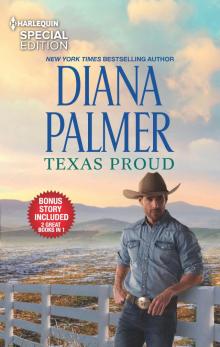 Texas Proud and Circle of Gold
Texas Proud and Circle of Gold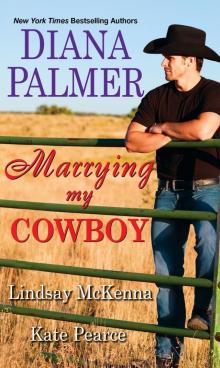 Marrying My Cowboy
Marrying My Cowboy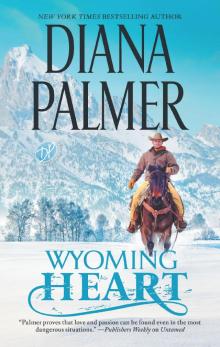 Wyoming Heart
Wyoming Heart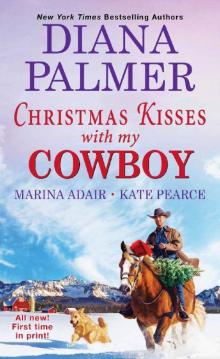 Christmas Kisses with My Cowboy
Christmas Kisses with My Cowboy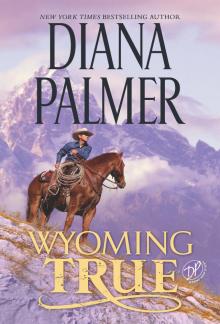 Wyoming True
Wyoming True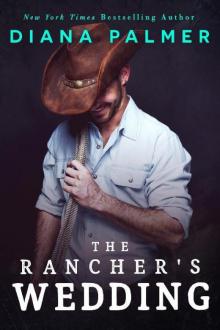 The Rancher's Wedding
The Rancher's Wedding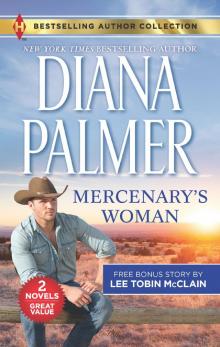 Mercenary's Woman ; Outlawed!
Mercenary's Woman ; Outlawed!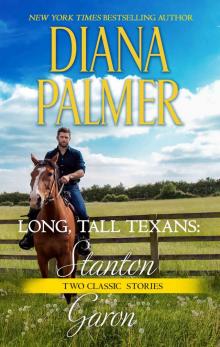 Long, Tall Texans: Stanton ; Long, Tall Texans: Garon
Long, Tall Texans: Stanton ; Long, Tall Texans: Garon Lawless
Lawless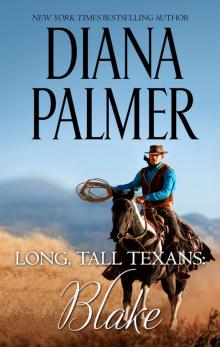 Blake
Blake Escapade
Escapade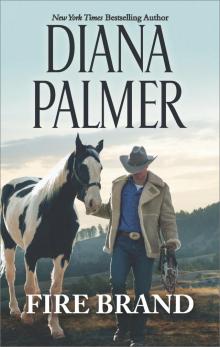 Fire Brand
Fire Brand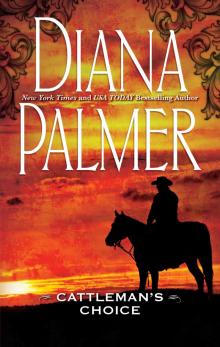 Cattleman's Choice
Cattleman's Choice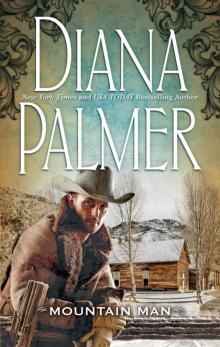 Mountain Man
Mountain Man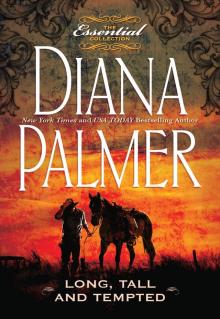 Long, Tall and Tempted
Long, Tall and Tempted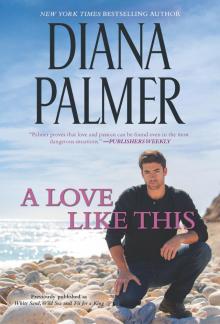 A Love Like This
A Love Like This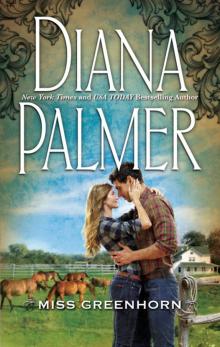 Miss Greenhorn
Miss Greenhorn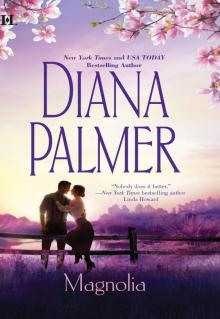 Magnolia
Magnolia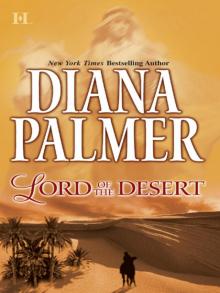 Lord of the Desert
Lord of the Desert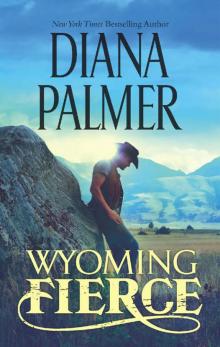 Wyoming Fierce
Wyoming Fierce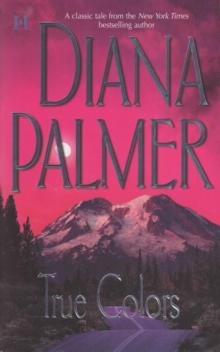 True Colors
True Colors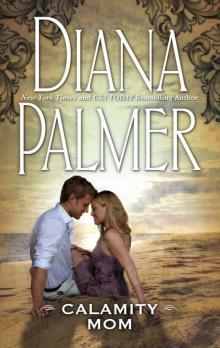 Calamity Mom
Calamity Mom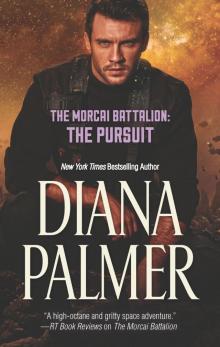 The Pursuit
The Pursuit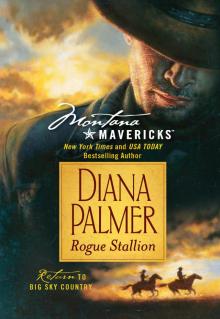 Rogue Stallion
Rogue Stallion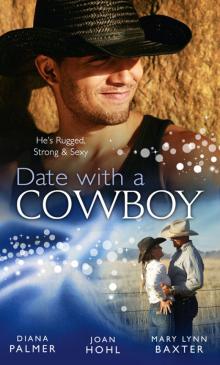 Date with a Cowboy
Date with a Cowboy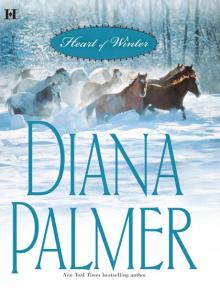 Heart of Winter
Heart of Winter Friends and Lovers
Friends and Lovers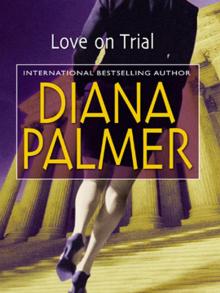 Love on Trial
Love on Trial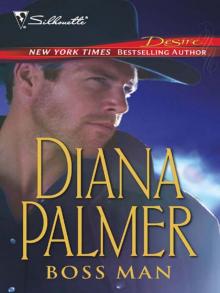 Boss Man
Boss Man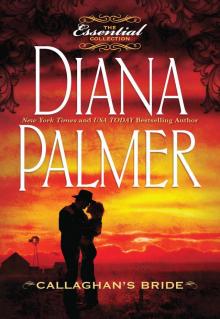 Callaghan's Bride
Callaghan's Bride Before Sunrise
Before Sunrise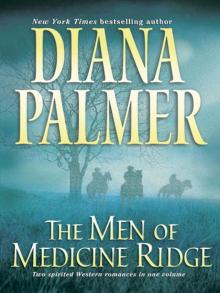 The Men of Medicine Ridge
The Men of Medicine Ridge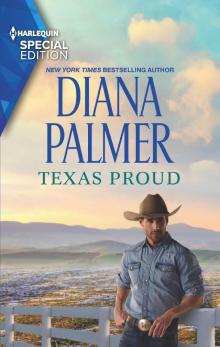 Texas Proud
Texas Proud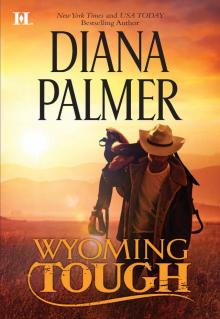 Wyoming Tough
Wyoming Tough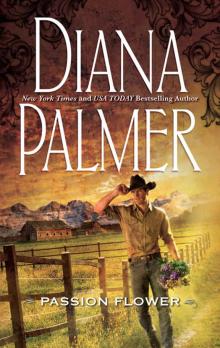 Passion Flower
Passion Flower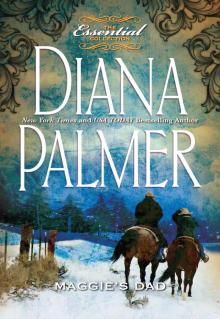 Maggie's Dad
Maggie's Dad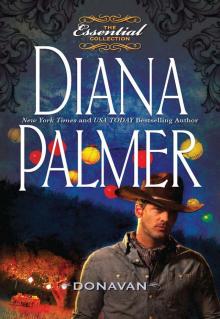 Donavan
Donavan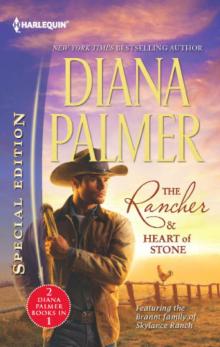 The Rancher & Heart of Stone
The Rancher & Heart of Stone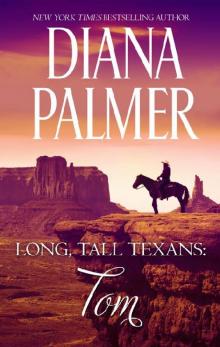 Long, Tall Texans: Tom
Long, Tall Texans: Tom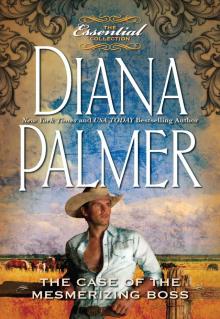 The Case of the Mesmerizing Boss
The Case of the Mesmerizing Boss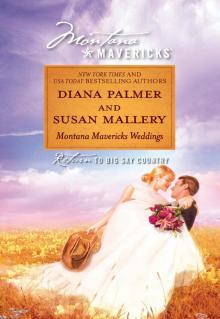 Montana Mavericks Weddings
Montana Mavericks Weddings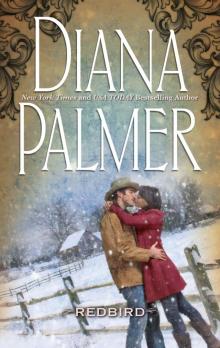 Redbird
Redbird Wyoming Strong
Wyoming Strong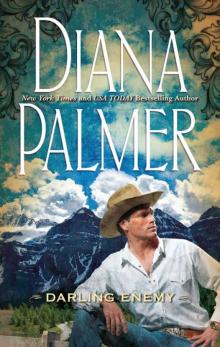 Darling Enemy
Darling Enemy Love by Proxy
Love by Proxy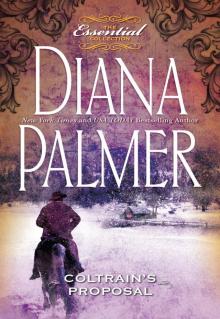 Coltrain's Proposal
Coltrain's Proposal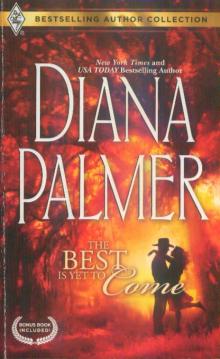 The Best Is Yet to Come & Maternity Bride
The Best Is Yet to Come & Maternity Bride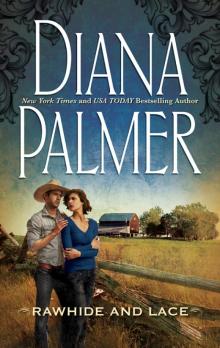 Rawhide and Lace
Rawhide and Lace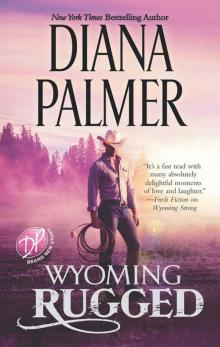 Wyoming Rugged
Wyoming Rugged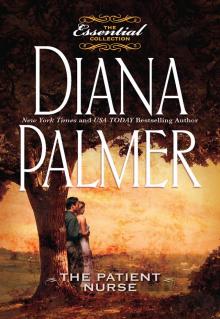 Patient Nurse
Patient Nurse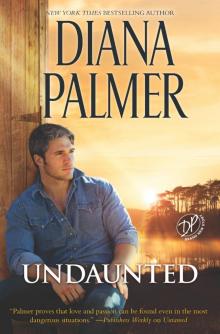 Undaunted
Undaunted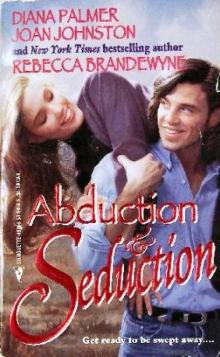 Long Tall Texans Series Book 13 - Redbird
Long Tall Texans Series Book 13 - Redbird Outsider
Outsider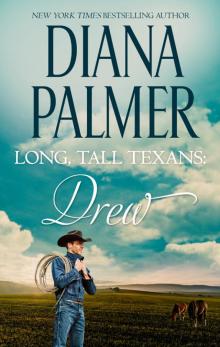 Long, Tall Texans: Drew
Long, Tall Texans: Drew Long, Tall Texans--Christopher
Long, Tall Texans--Christopher Merciless
Merciless A Match Made Under the Mistletoe
A Match Made Under the Mistletoe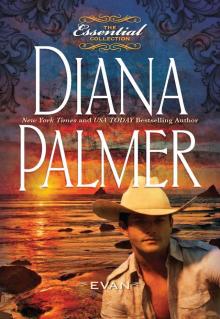 Evan
Evan Hunter
Hunter Now and Forever
Now and Forever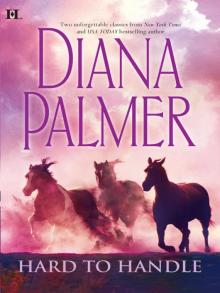 Hard to Handle
Hard to Handle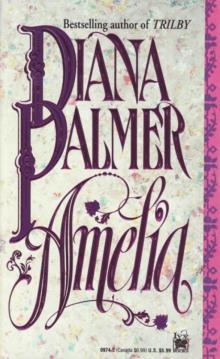 Amelia
Amelia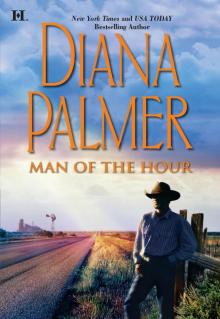 Man of the Hour
Man of the Hour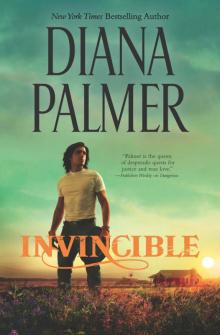 Invincible
Invincible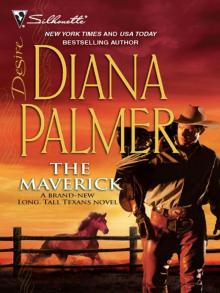 The Maverick
The Maverick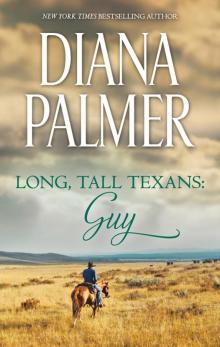 Long, Tall Texans--Guy
Long, Tall Texans--Guy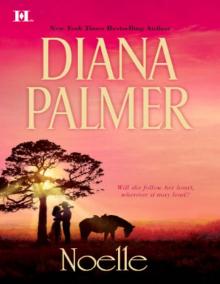 Noelle
Noelle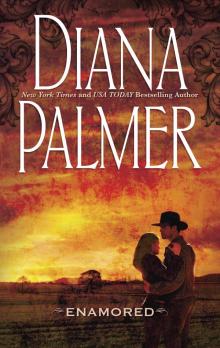 Enamored
Enamored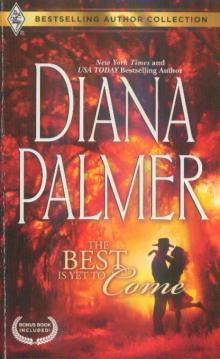 The Best Is Yet to Come
The Best Is Yet to Come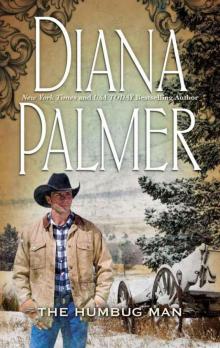 The Humbug Man
The Humbug Man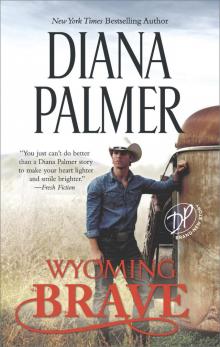 Wyoming Brave
Wyoming Brave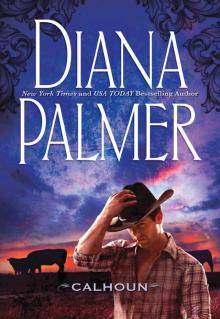 Calhoun
Calhoun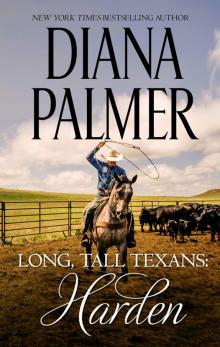 Long, Tall Texans--Harden
Long, Tall Texans--Harden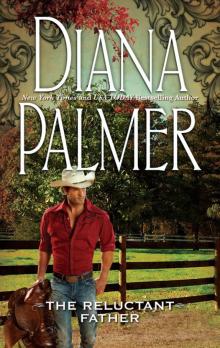 The Reluctant Father
The Reluctant Father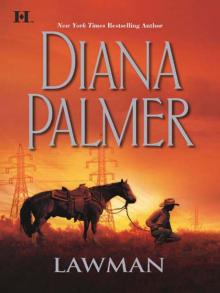 Lawman
Lawman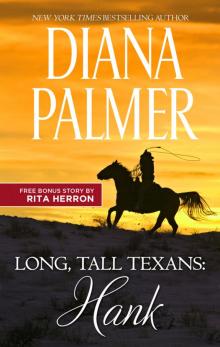 Long, Tall Texans: Hank & Ultimate Cowboy ; Long, Tall Texans: Hank
Long, Tall Texans: Hank & Ultimate Cowboy ; Long, Tall Texans: Hank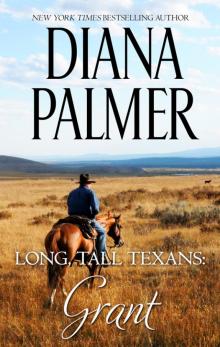 Grant
Grant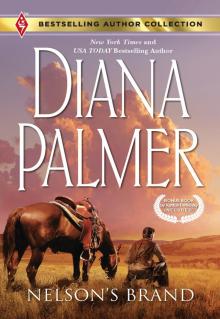 Nelson's Brand
Nelson's Brand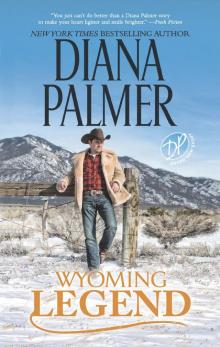 Wyoming Legend
Wyoming Legend Diamond Spur
Diamond Spur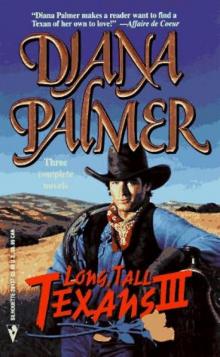 That Burke Man
That Burke Man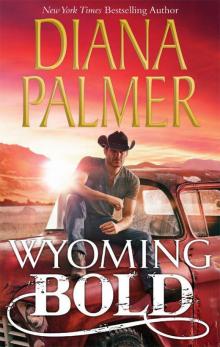 Wyoming Bold (Mills & Boon M&B)
Wyoming Bold (Mills & Boon M&B) Heartless
Heartless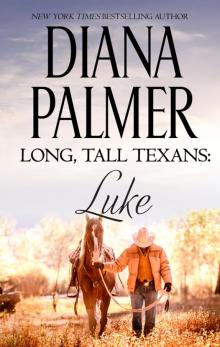 Long, Tall Texans--Luke
Long, Tall Texans--Luke To Have and to Hold
To Have and to Hold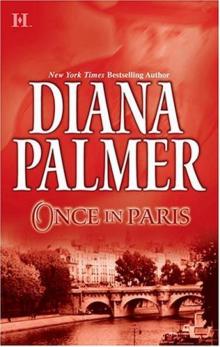 Once in Paris
Once in Paris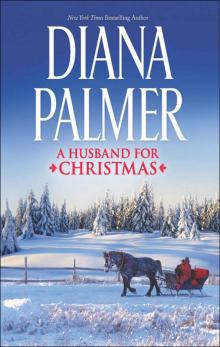 A Husband for Christmas: Snow KissesLionhearted
A Husband for Christmas: Snow KissesLionhearted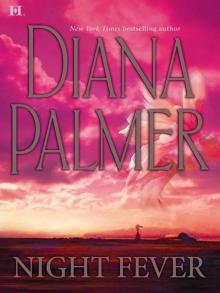 Night Fever
Night Fever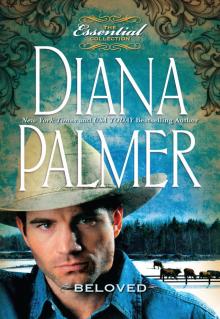 Beloved
Beloved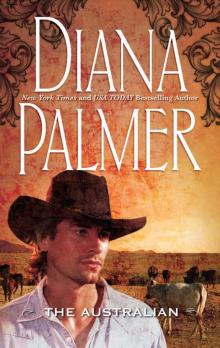 The Australian
The Australian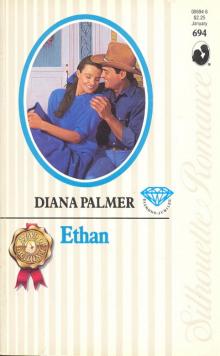 Ethan
Ethan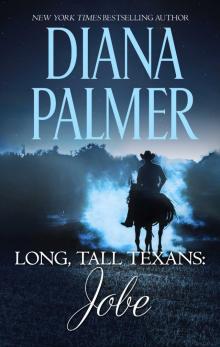 Long, Tall Texans: Jobe
Long, Tall Texans: Jobe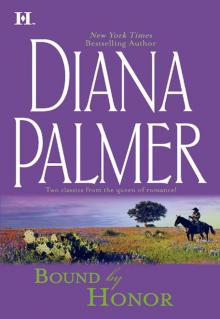 Bound by Honor: Mercenary's WomanThe Winter Soldier
Bound by Honor: Mercenary's WomanThe Winter Soldier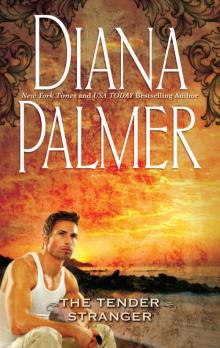 Tender Stranger
Tender Stranger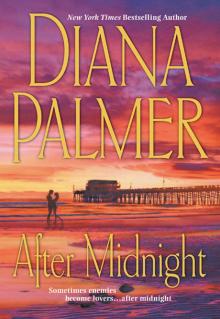 After Midnight
After Midnight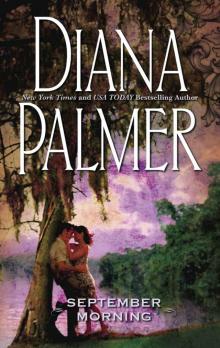 September Morning
September Morning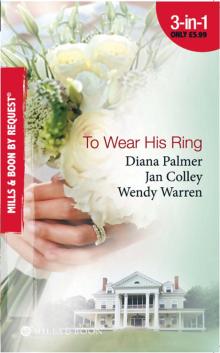 To Wear His Ring
To Wear His Ring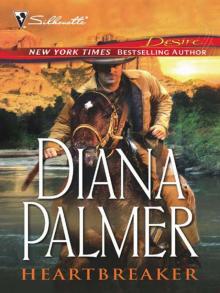 Heartbreaker
Heartbreaker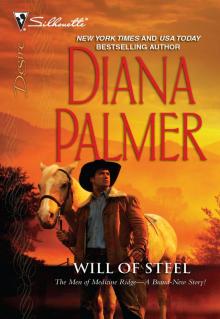 Will of Steel
Will of Steel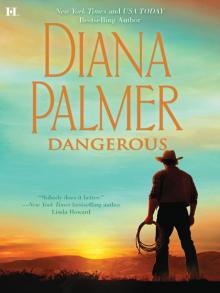 Dangerous
Dangerous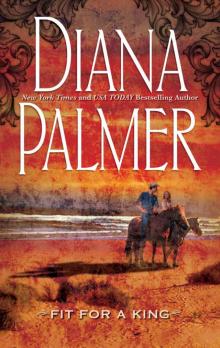 Fit for a King
Fit for a King Diamond in the Rough
Diamond in the Rough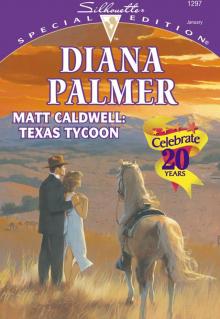 Matt Caldwell: Texas Tycoon
Matt Caldwell: Texas Tycoon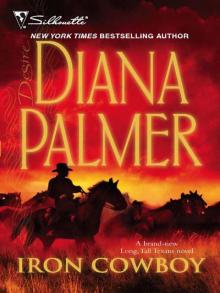 Iron Cowboy
Iron Cowboy Fire And Ice
Fire And Ice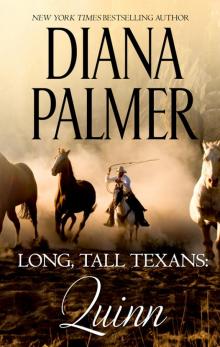 Long, Tall Texans--Quinn--A Single Dad Western Romance
Long, Tall Texans--Quinn--A Single Dad Western Romance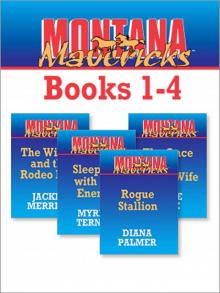 Montana Mavericks, Books 1-4
Montana Mavericks, Books 1-4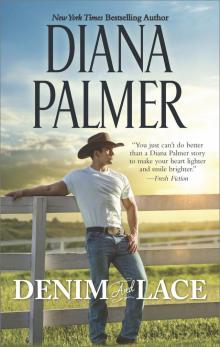 Denim and Lace
Denim and Lace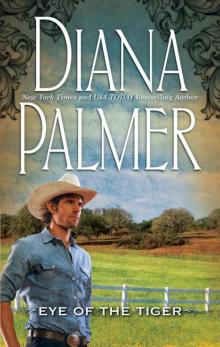 Eye of the Tiger
Eye of the Tiger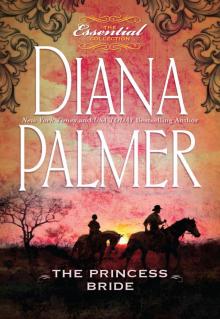 The Princess Bride
The Princess Bride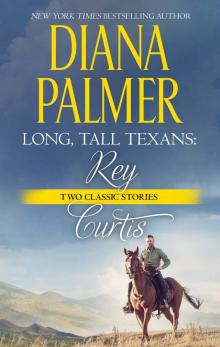 Long, Tall Texans: Rey ; Long, Tall Texans: Curtis ; A Man of Means ; Garden Cop
Long, Tall Texans: Rey ; Long, Tall Texans: Curtis ; A Man of Means ; Garden Cop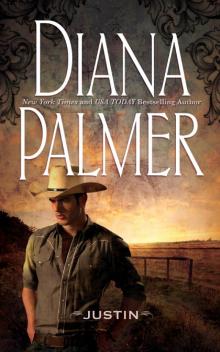 Justin
Justin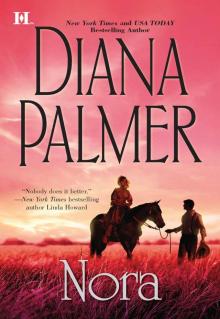 Nora
Nora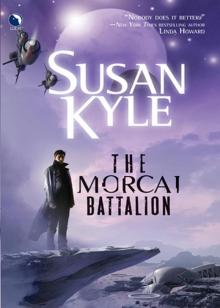 The Morcai Battalion
The Morcai Battalion Heart of Stone
Heart of Stone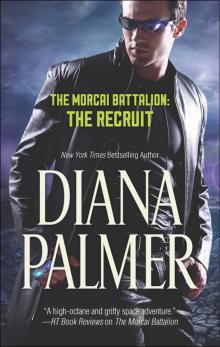 The Morcai Battalion: The Recruit
The Morcai Battalion: The Recruit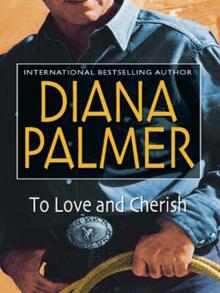 To Love and Cherish
To Love and Cherish Invictus
Invictus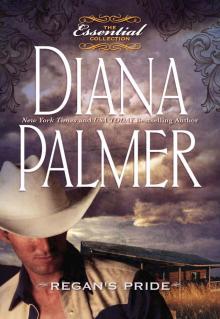 Regan's Pride
Regan's Pride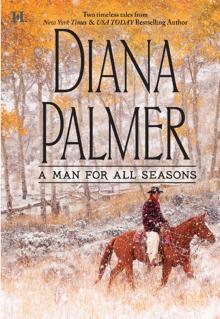 A Man for All Seasons
A Man for All Seasons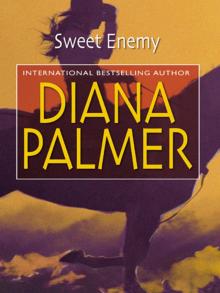 Sweet Enemy
Sweet Enemy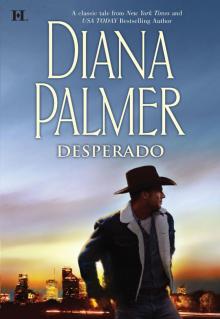 Desperado
Desperado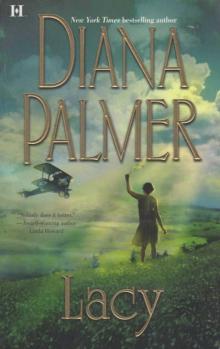 Lacy
Lacy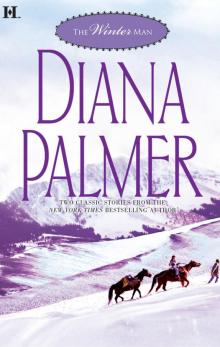 The Winter Man
The Winter Man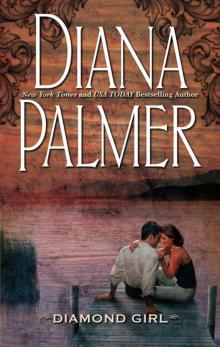 Diamond Girl
Diamond Girl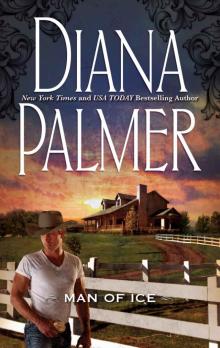 Man of Ice
Man of Ice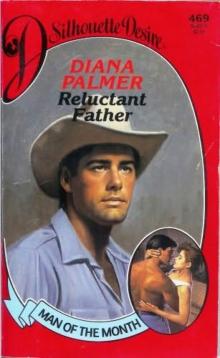 Reluctant Father
Reluctant Father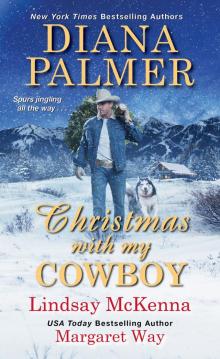 Christmas with My Cowboy
Christmas with My Cowboy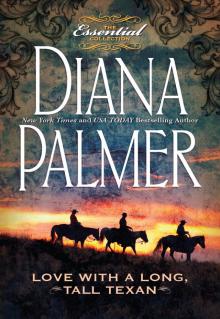 Love with a Long, Tall Texan
Love with a Long, Tall Texan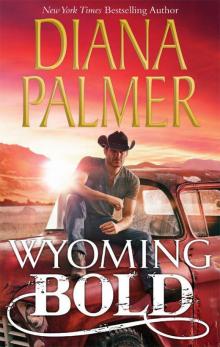 Wyoming Bold wm-3
Wyoming Bold wm-3 King's Ransom
King's Ransom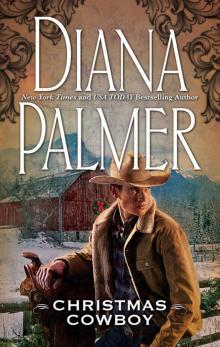 Christmas Cowboy
Christmas Cowboy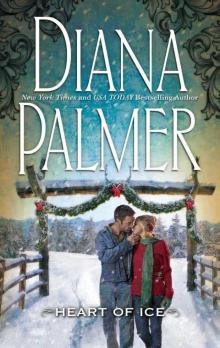 Heart of Ice
Heart of Ice Fearless
Fearless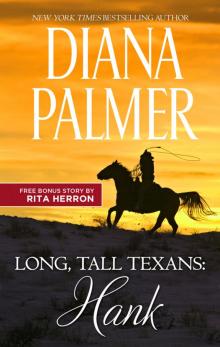 Long, Tall Texans_Hank
Long, Tall Texans_Hank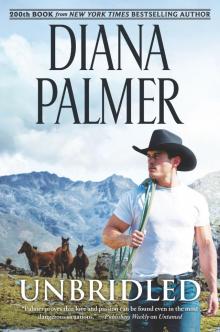 Unbridled
Unbridled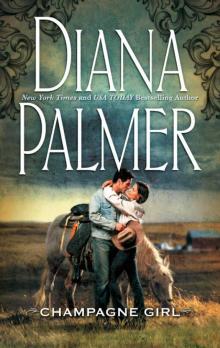 Champagne Girl
Champagne Girl The Greatest Gift
The Greatest Gift Storm Over the Lake
Storm Over the Lake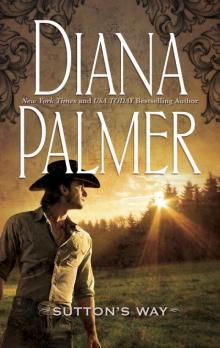 Sutton's Way
Sutton's Way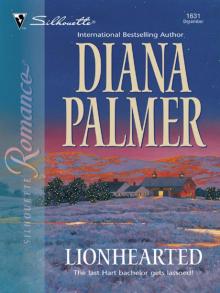 Lionhearted
Lionhearted Renegade
Renegade Betrayed by Love
Betrayed by Love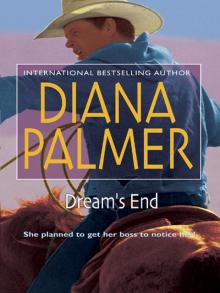 Dream's End
Dream's End All That Glitters
All That Glitters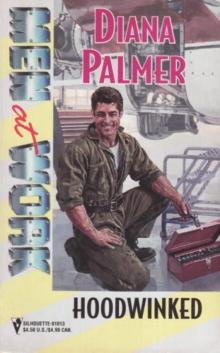 Hoodwinked
Hoodwinked Soldier of Fortune
Soldier of Fortune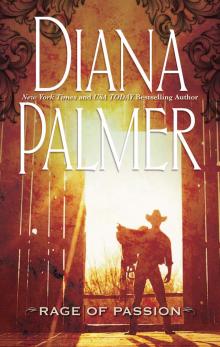 Rage of Passion
Rage of Passion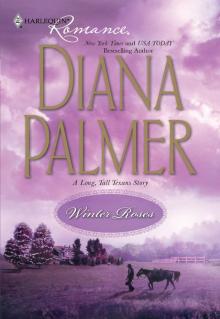 Winter Roses
Winter Roses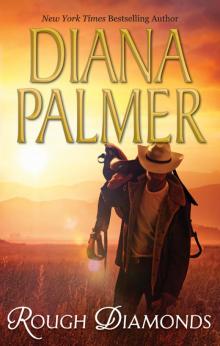 Rough Diamonds: Wyoming ToughDiamond in the Rough
Rough Diamonds: Wyoming ToughDiamond in the Rough Protector
Protector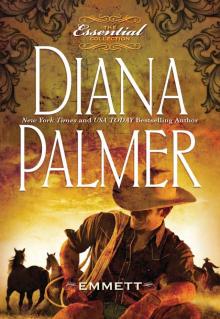 Emmett
Emmett True Blue
True Blue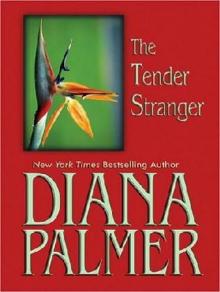 The Tender Stranger
The Tender Stranger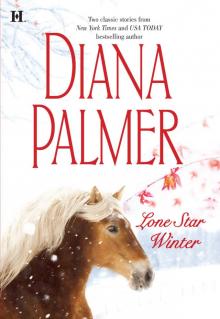 Lone Star Winter
Lone Star Winter Man in Control
Man in Control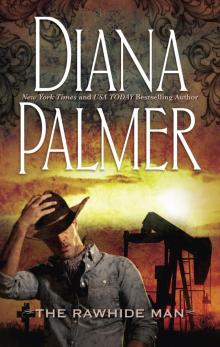 The Rawhide Man
The Rawhide Man Untamed
Untamed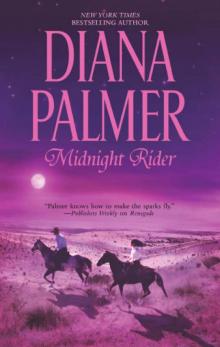 Midnight Rider
Midnight Rider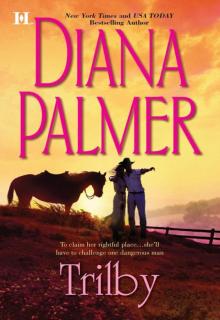 Trilby
Trilby A Long Tall Texan Summer
A Long Tall Texan Summer Tangled Destinies
Tangled Destinies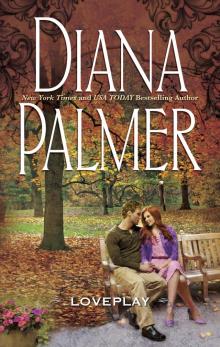 LovePlay
LovePlay Blind Promises
Blind Promises Carrera's Bride
Carrera's Bride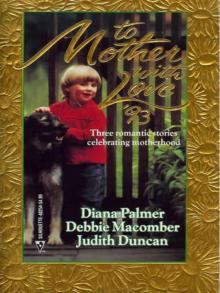 Calamity Mum
Calamity Mum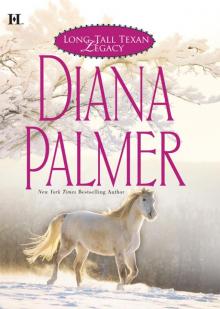 Long, Tall Texan Legacy
Long, Tall Texan Legacy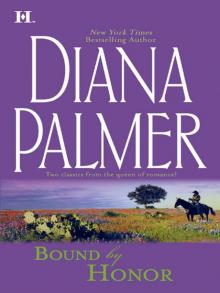 Bound by Honor
Bound by Honor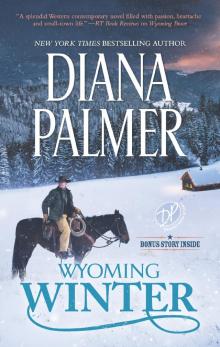 Wyoming Winter--A Small-Town Christmas Romance
Wyoming Winter--A Small-Town Christmas Romance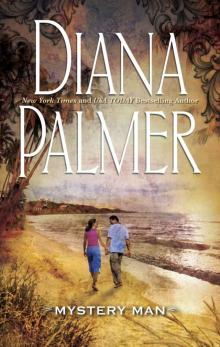 Mystery Man
Mystery Man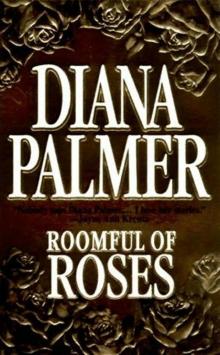 Roomful of Roses
Roomful of Roses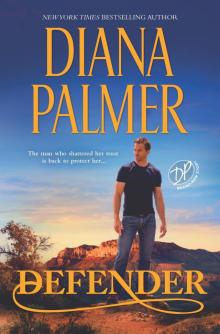 Defender
Defender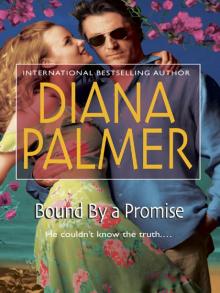 Bound by a Promise
Bound by a Promise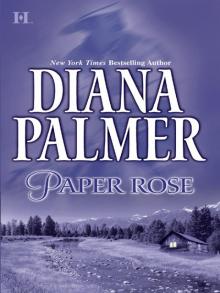 Paper Rose
Paper Rose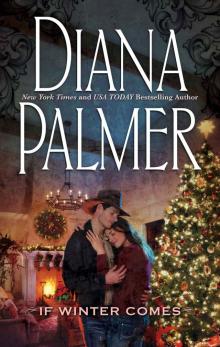 If Winter Comes
If Winter Comes Circle of Gold
Circle of Gold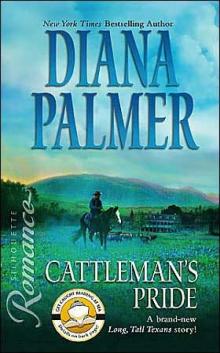 Cattleman's Pride
Cattleman's Pride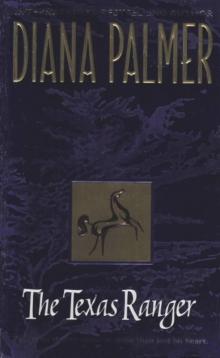 The Texas Ranger
The Texas Ranger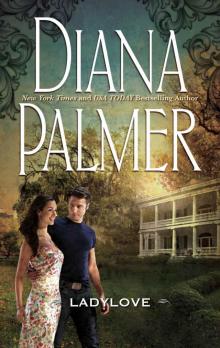 Lady Love
Lady Love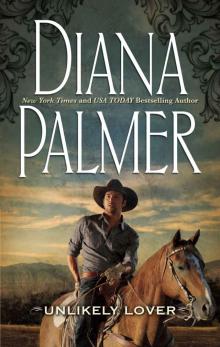 Unlikely Lover
Unlikely Lover A Man of Means
A Man of Means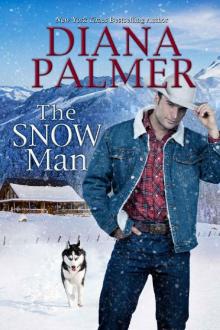 The Snow Man
The Snow Man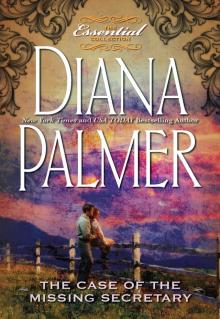 The Case of the Missing Secretary
The Case of the Missing Secretary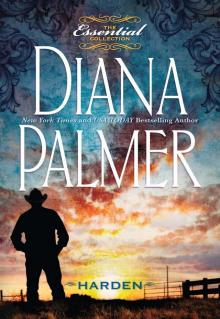 Harden
Harden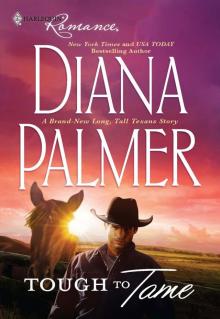 Tough to Tame
Tough to Tame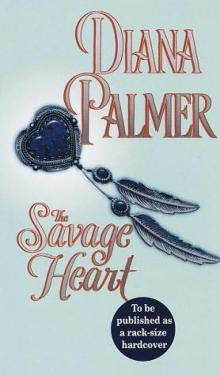 The Savage Heart
The Savage Heart